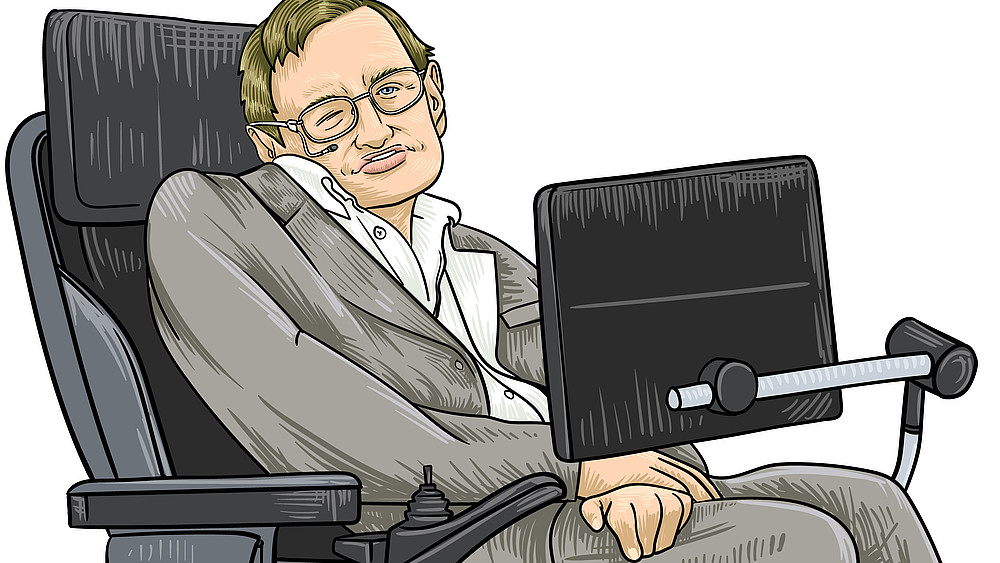HSZG honors the recently deceased astrophysicist Stephen Hawking and develops Inclusion 2025 action plan.

On March 14, the news reported the death of British astrophysicist Stephen Hawking (1942-2018). His highly interesting life is exemplary for many people with impairments who lead a completely normal life despite their disability or limitation.
Hawking experienced extreme health impairments at the age of 20 while working on his doctorate. He was diagnosed with ALS(amyotrophic lateral sclerosis) , a very serious disease of the nervous system. At the time, doctors gave him a prognosis of only three years to live.
The fact that his life went on differently and that now - in March 2018 - a 76-year-old, world-famous physicist, who is mentioned alongside Newton and Galileo, has passed away can be attributed to his intelligence, the course of his illness, the way he dealt with it and his social participation despite his disability. The documentary Stephen Hawking from 2014, which is well worth seeing, carefully traces this success story.
Hawking's health impairments meant that he was dependent on the support of his fellow human beings at all times, but was still able to lead a largely self-determined life.
The Zittau/Görlitz University of Applied Sciences honors Hawking's life's work
and appeals to its members to support the principles set out in the recently published Action Plan Inclusion 2025 - HSZG for All and to walk the path to an inclusive university together.
The diversity of people requires solutions in everyday life at the HSZG that serve to compensate for disadvantages. People with disabilities are particularly dependent on this. They do not want special attention. Like all other people, they need acceptance and participation for their self-efficacy.
The HSZG's Inclusion 2025 action plan addresses the special responsibility of all university members (employees and students) for the implementation of the rights of people with disabilities in accordance with the UN Convention on Human Rights (UN CRPD).
The action plan defines the individual measures with participation goals in 5 fields of action and underpins them with resources:
The university is thus also responding to the political demand to focus more strongly on disability in the context of studying and teaching, and as an employer. Inclusion can be an important driver for the renewal of processes and structures, as well as for the continuous review of one's own attitude.
From now on, a steering committee will accompany the implementation of the Inclusion Action Plan. Its members are Dipl.-Jur. Karin Hollstein, Prof. Dr. jur. Michael Kaspar, Prof. Dr. phil. Petra Fuchs, Dr. Jürgen Scheibler, Robert Viertel M.A.
The members of the steering committee will be happy to receive your suggestions for improving participation opportunities.
The university's public relations work supports the visibility of inclusion with a logo.